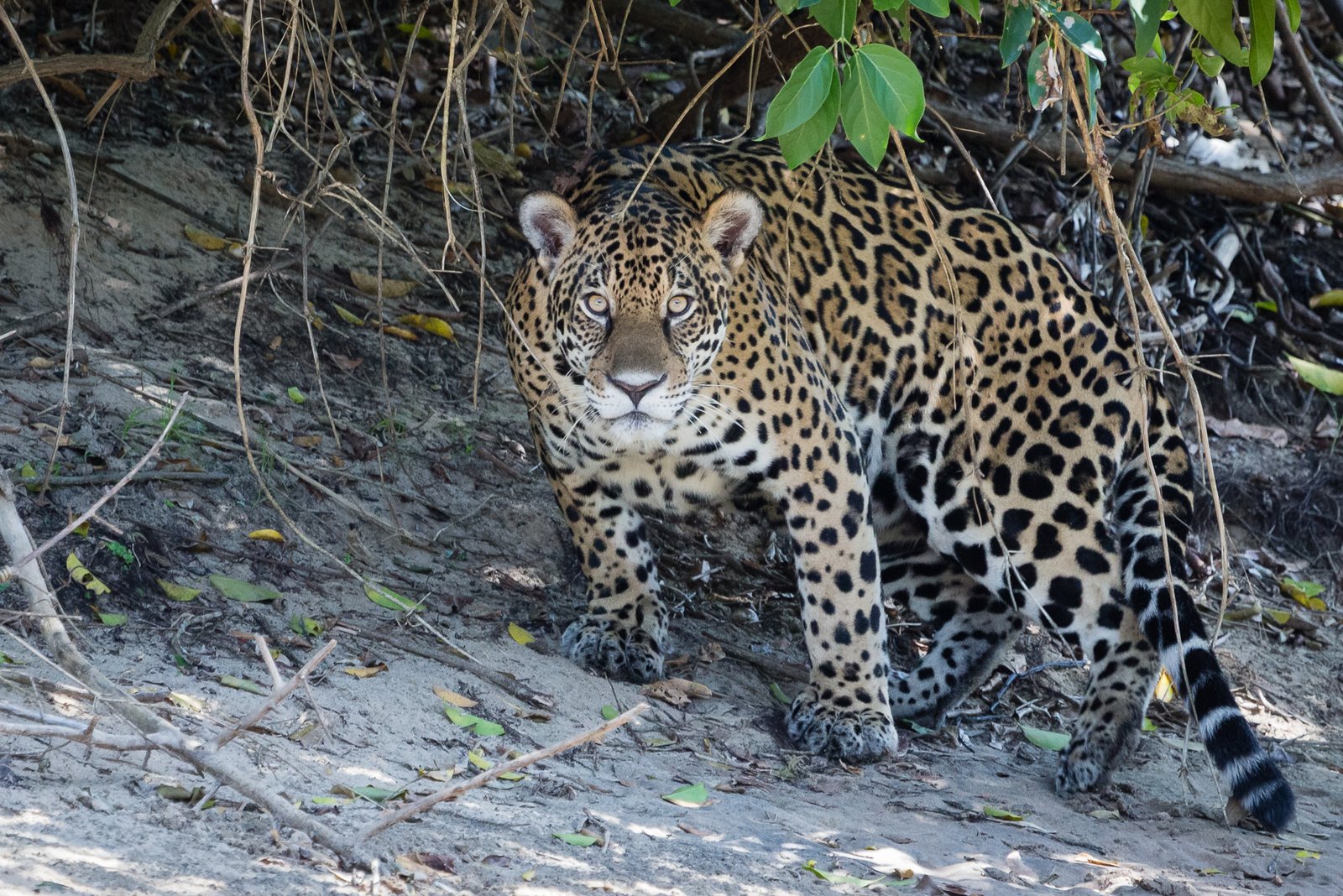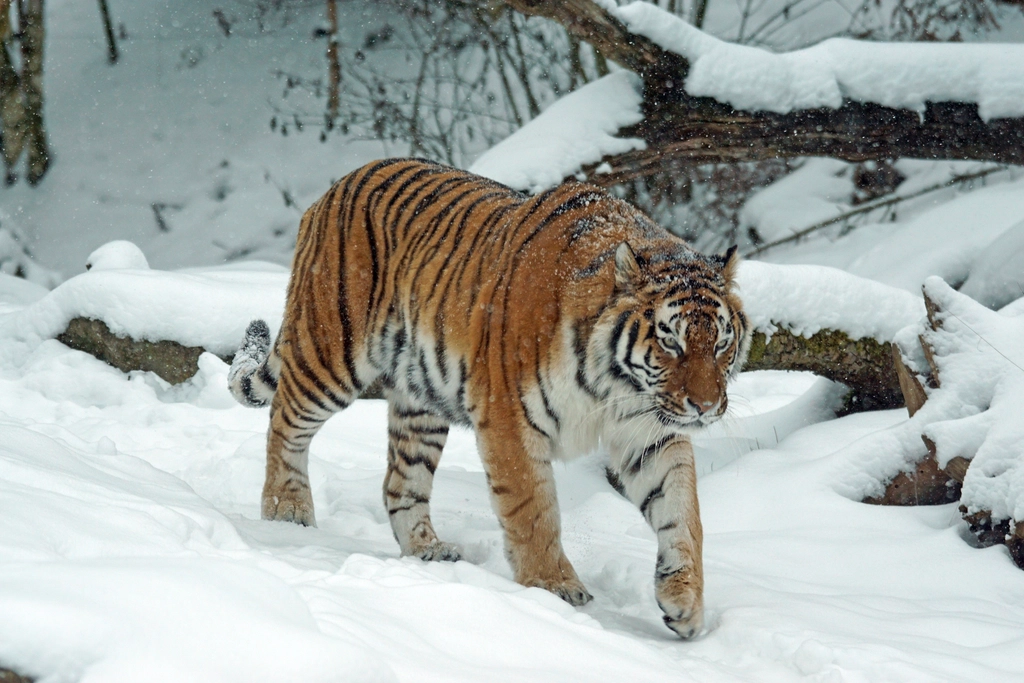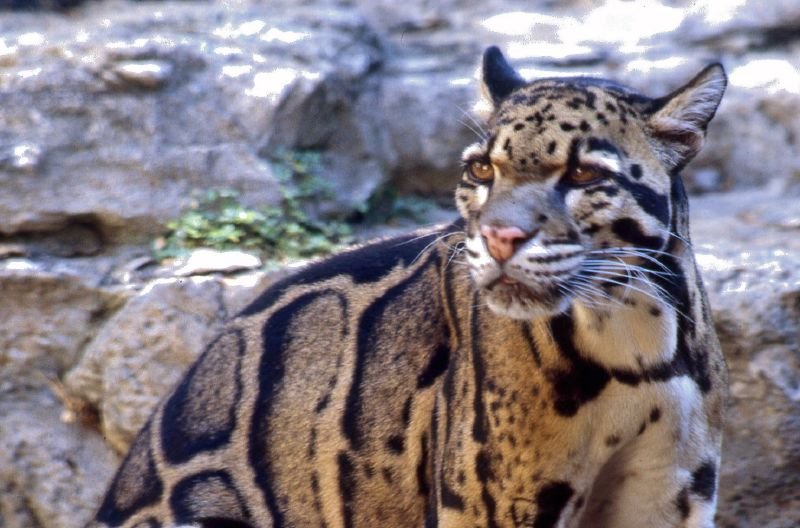Big cats: majestic, mysterious, and somehow both fierce and graceful at once. Across the globe, these powerful felines still roam free, from the humid jungles of India to the icy mountains of Russia. Ever dreamed of locking eyes with a tiger in the wild or catching a glimpse of a secretive jaguar? Let’s leap into a gallery of 25 dazzling facts and tips about where these big cats live and how you can (safely!) spot them, sure to thrill every feline fanatic.
India: Land of the Royal Bengal Tiger

India is the undisputed kingdom for wild tigers, hosting more than 70% of the world’s remaining population. National parks like Ranthambore, Bandhavgarh, and Kanha are tiger hotspots, where you might see a striped giant padding through the grass. These tigers love water, often cooling off in lakes—so keep your camera ready near the shores! Visiting during the hot, dry season increases your chances; waterholes become feline gathering spots. Seeing a tiger’s amber stare in its natural home is a heart-pounding moment you’ll never forget.
Brazil: Jungle Home of the Elusive Jaguar

Brazil’s Pantanal, the largest tropical wetland on Earth, is the best place to spot jaguars—the only big cat in the Americas known for loving a good swim. Unlike most cats, jaguars dive right in, hunting caiman or relaxing on riverbanks. These spotted beauties are powerhouses, with jaws strong enough to crack turtle shells. Guided boat safaris offer your best shot at seeing one, often in the golden light of late afternoon. If you’re extra lucky, you might spot a pair courting or a mother with her playful cubs.
Russia: Siberian Tigers in the Snow

Siberia’s vast, icy forests are the last stronghold of the Amur (Siberian) tiger—the world’s largest cat. Imagine the thrill of tracking their massive pawprints in fresh snow, hoping for a glimpse of their orange-and-black coats blending among bare trees. These cats are built for the cold, with thick fur and huge paws that work like snowshoes. Wildlife reserves around Primorye offer guided tracking tours, but even just hearing a tiger’s rumbling call echoing through the woods is an unforgettable experience.
South Africa: Lions Roaring Over Golden Plains

The golden grasslands of South Africa’s Kruger National Park are synonymous with wild lions. Here, prides nap under acacia trees or hunt in the cool of dawn. Seeing a lion—especially a whole pride with cubs tumbling about—feels straight out of a nature documentary. Safari guides know the best spots for sightings, often following the deep, thunderous roars that can travel miles. If you’re lucky, you’ll witness a sunrise chorus of roars—a sound that vibrates right through your chest.
Kenya: Cheetahs Sprinting Across the Savannah

Kenya’s Masai Mara is famous for its cheetahs, the world’s fastest land animal. These graceful cats are built for speed, with slender bodies and tear-mark stripes that help reduce sun glare. During the Great Migration, cheetahs take advantage of the abundance of prey, often seen perching on termite mounds to scout for gazelles. Guides can sometimes predict a hunt, giving visitors the rare chance to witness a real-life sprint—blink and you’ll miss it!
Namibia: Leopards Among the Rocks

Namibia’s rugged landscapes, especially around Okonjima and Etosha, are leopard territory. These solitary cats are masters of stealth, often seen draped over tree branches or slinking through boulder-strewn valleys at dusk. Leopards here sometimes stash their prey high above to avoid scavengers—a real-life game of feline keep-away. Night drives offer a magical chance to spot their glowing eyes reflecting in the darkness, making your heart race with anticipation.
Indonesia: Sumatra’s Secretive Clouded Leopards

Sumatra’s dense rainforests hide one of the world’s most mysterious cats: the Sunda clouded leopard. With smudgy, cloud-shaped spots and a tail nearly as long as its body, this feline is practically a living shadow. Sightings are rare, but camera traps have revealed their acrobatic tree-climbing skills—sometimes hanging upside down like circus performers. Trekking with local guides gives you a peek into their hidden world, where every rustle might be a clouded leopard on the move.
China: The Snow Leopard’s Mountain Kingdom

The wild, high-altitude ranges of western China are home to the ethereal snow leopard. Nicknamed “the ghost of the mountains,” these cats are masters of camouflage, blending invisibly into rocky slopes. Spotting one takes patience and luck—local trackers know the secret trails and vantage points. If you do see a snow leopard, it feels almost magical, like finding a unicorn. Their thick, smoky fur and long tails help them balance on cliffs and withstand the biting cold.
United States: Pumas Roaming the Wild West

From the forests of California to the canyons of Utah, North America’s pumas (also called cougars or mountain lions) are making a quiet comeback. These adaptable cats can leap over 20 feet in a single bound—imagine an Olympic long jumper with fur! While they’re shy and mostly nocturnal, guided hikes in places like Yellowstone or the Santa Monica Mountains sometimes reveal fresh tracks or fleeting shadows. Spotting a puma is a rare, electrifying rush.
Tanzania: Serengeti’s Big Cat Bonanza

Tanzania’s Serengeti is the ultimate big cat paradise, with lions, leopards, and cheetahs all sharing the sweeping plains. The drama here is nonstop—watch a pride of lions lounging in the shade, a spotted leopard snoozing in a tree, or a cheetah family teaching their cubs to hunt. The annual wildebeest migration draws predators from miles around, creating a real-life “circle of life” spectacle. Every game drive feels like rolling the dice for a new feline surprise.
Botswana: Stealthy Leopards Along the Okavango Delta

Botswana’s Okavango Delta is a watery wonderland where leopards thrive. Picture a spotted cat gliding silently along the riverbank, or expertly hauling its dinner up a tree to feast in peace. The dense reeds provide perfect cover for ambushes, and night safaris often reveal leopards slipping ghost-like through the shadows. Guides here are leopard experts, able to spot a tail flick or the telltale rustle that signals a big cat is near.
Thailand: Indochinese Tigers in Lush Jungles

The thick jungles of Thailand’s Huai Kha Khaeng Wildlife Sanctuary still shelter the rare Indochinese tiger. These shy cats are masters of camouflage, melting into the dappled sunlight and leaves. Local trackers patrol on foot, searching for paw prints and scratch marks that hint at a tiger’s presence. Hearing a tiger’s low growl echoing through the forest will make your hair stand on end—proof that wild magic still exists in our world.
Zimbabwe: Lion Encounters in Hwange National Park

Hwange National Park in Zimbabwe is legendary for close encounters with lions. Here, prides sometimes lounge right by the roadside, giving visitors front-row seats to their social lives—grooming, playing, or plotting their next meal. The park’s wide-open pans attract wildlife galore, and lions often stage dramatic hunts at dusk. Seeing a lion yawn, revealing its massive fangs, is both adorable and a little bit spooky.
Nepal: Snow Leopards in Himalayan Valleys

Nepal’s snowy valleys are a stronghold for the elusive snow leopard. Trekkers in the Annapurna or Mustang regions sometimes spot these cats following herds of blue sheep across the slopes. Local communities, once fearful, now protect snow leopards as living treasures. Seeing fresh pawprints in the snow or catching a glimpse of that thick, smoky tail disappearing behind a rock is pure Himalayan magic.
Peru: Jaguars of the Amazon Rainforest

Peru’s Amazon jungle is another jaguar stronghold, where these cats rule over a kingdom of tangled vines and muddy rivers. Jaguars here are expert swimmers, often hunting capybaras or even anacondas! River expeditions at dawn or dusk offer a chance to see one slinking along a muddy bank, eyes glowing in the low light. The thrill of hearing branches crack as a jaguar moves through the jungle is simply unforgettable.
Malaysia: Malayan Tigers in Tropical Forests

Malaysia’s Taman Negara National Park is a last refuge for the critically endangered Malayan tiger. These cats are smaller and even more secretive than their Indian cousins, prowling thick undergrowth for deer or wild pigs. Local guides use camera traps and patient tracking to give visitors a fighting chance at a sighting. Just knowing these rare, striped ghosts still exist makes every jungle trek a real adventure.
Mongolia: Pallas’s Cat, the Fluffy Mountain Phantom

Mongolia’s wild steppes are home to the quirky Pallas’s cat, a small but fierce wild feline with a grumpy, round face and plush, fluffy fur. Unlike other big cats, they blend perfectly into rocky outcrops, making them hard to spot. Local rangers sometimes spot them hunting pika at dawn or dusk. Seeing one feels like finding a teddy bear that’s come to life—adorable, mysterious, and totally unique.
Iran: The Last Asiatic Cheetahs

Iran’s arid plains are the final holdout for the Asiatic cheetah, a critically endangered subspecies. These cats are even sleeker and paler than their African relatives, blending perfectly into sandy landscapes. Conservationists use camera traps and remote monitoring to keep tabs on the last few, making any sighting incredibly special. Imagine catching a flash of spotted fur as a cheetah streaks across the horizon—an almost mythical moment.
Australia: Feral Cats Rule the Outback (With a Wild Twist)

Australia’s wildest felines are actually feral cats, descended from domestic pets but now fierce predators in their own right. They’re clever, adaptable, and have even outsmarted some native predators. While not “big cats” in the traditional sense, seeing one slinking through the red sands of the Outback is a reminder of nature’s resilience—and of how wildness can pop up in the most unexpected places.
Laos: Clouded Leopards in Misty Hills

Laos’ mist-shrouded hills are a little-known home to the beautiful clouded leopard. These cats move like liquid through the trees, rarely touching the ground. Their large, expressive eyes and smoky coats help them vanish into the forest’s shadows. Guided jungle treks sometimes reveal scratch marks or the faintest rustle of movement—a tantalizing hint that a clouded leopard is watching from above.
Uganda: Tree-Climbing Lions of Queen Elizabeth Park

Uganda’s Queen Elizabeth National Park is famous for its tree-climbing lions—a rare behavior in the big cat world! These impressive cats clamber high into fig trees to nap or escape biting insects. Spotting a full-grown lion draped over a branch like a lazy housecat is a jaw-dropping sight. Local guides know the favorite trees, making this a must-see for big cat lovers.
Argentina: Pumas Patrolling Patagonia

Patagonia’s dramatic landscapes in Argentina are a stronghold for pumas. These solitary cats stalk guanacos across windswept plains, sometimes shadowed by Andean condors. Guided hikes in Torres del Paine or Los Glaciares National Parks give you the best chance of seeing a puma’s tawny form against snow-capped peaks. Each sighting feels like a prize won from the wild.
Turkey: Anatolian Leopards on the Comeback Trail

The Anatolian leopard, long thought extinct, has been recently rediscovered in remote parts of Turkey. These cats are a living link to ancient legends, prowling rocky canyons and pine forests under cover of darkness. Camera traps have captured their silent, shadowy movements, sparking hope for their future. Exploring these rugged landscapes is like stepping into a fairy tale—where leopards really do lurk in the shadows.
Bhutan: Tigers at the Roof of the World

Bhutan’s wild, high-altitude forests are one of the few places where tigers live at elevations above 3,000 meters. Imagine a tiger padding through rhododendron forests, snow swirling around its stripes—a true symbol of wild resilience. Guided treks with park rangers offer a chance to see tracks or hear tales of recent sightings. Each encounter feels like a blessing from the mountains themselves.
Cameroon: Lions of Waza National Park

Cameroon’s Waza National Park is a patchwork of savannahs and acacia forests, home to a small but resilient population of lions. These cats are true survivors, adapting to a changing landscape and often seen hunting in the cool of evening. Local guides share stories of bold lionesses and curious cubs, reminding visitors that even in Africa’s less-traveled corners, the king of the jungle still reigns.
Which of these wild cats would you love to meet face to face?

Suhail Ahmed is a passionate digital professional and nature enthusiast with over 8 years of experience in content strategy, SEO, web development, and digital operations. Alongside his freelance journey, Suhail actively contributes to nature and wildlife platforms like Feline Fam, where he channels his curiosity for the Feline into engaging, educational storytelling.
With a strong background in managing digital ecosystems — from ecommerce stores and WordPress websites to social media and automation — Suhail merges technical precision with creative insight. His content reflects a rare balance: SEO-friendly yet deeply human, data-informed yet emotionally resonant.
Driven by a love for discovery and storytelling, Suhail believes in using digital platforms to amplify causes that matter — especially those protecting Earth’s biodiversity and inspiring sustainable living. Whether he’s managing online projects or crafting wildlife content, his goal remains the same: to inform, inspire, and leave a positive digital footprint.






